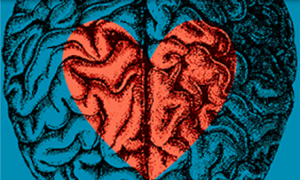Learning to live, learning to love groups
Many of the personal problems we face arise from family situations. Relationships between spouses, partners or other family members can be a great source of support when they are working well and a great source of distress when they are not. 
The stresses and strains of everyday life, together with the tensions that each member may contribute, can put families under immense pressure. The aim is to understand and change unhelpful and potentially destructive patterns of behaviour and develop healthier ways of relating.
Learning to Live, Learning to Love is based on the belief that once we have information we are able to make different choices and we break damaging cycles. We have been running groups since 1993 and have helped reduce breakdown, abuse and other problems as well as promoting the education and well-being of over 4000 individuals and families.
The curriculum
The programme runs for eighteen weeks. It was developed to provide help and education to families and individuals in need of support in their relationships. For many clients, this group is an ideal introduction to the experience of counselling. Emphasis is placed upon developing an understanding of the roots of behaviour that causes pain and difficulty in relationships.
These groups cover:
- Emotional arrest, its causes and the effect on relationships
- How core beliefs are constructed and form the foundation for our thoughts, actions and experiences
- How the unconscious mind drives behaviour
- Identifying abusive cycles in relationships
- The effect of the fear of abandonment
- The roots for the fear of intimacy and subsequent compensatory behaviours
- Anger management and identifying triggers to aggression
- Shame , its effects and how shame maintains “reactive behaviours” (abuse, addictions, self-destructive behaviours and poor relationships).
Through the Learning to Live Learning to Love curriculum, individuals and couples begin to understand the underlying negative beliefs that are driving their behaviour and can start to separate from distorted models of expressing anger and intimacy. The groups discuss the effect of their fears of abandonment and the impact of inappropriate early bonding that cause fear of intimacy and subsequent compensatory behaviours. The curriculum helps clients learn new habits of thinking and behaving and focuses on core beliefs about anger, anger management, sexuality and emotional bonding.
Please note that Learning to Live, Learning to Love classes are separate for gender preference.
Any questions, or if you would like to join us on this course, Contact Us for further information.
